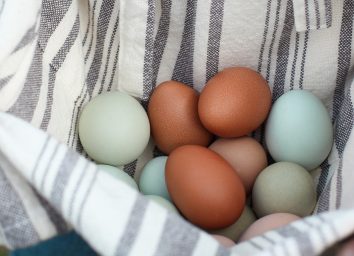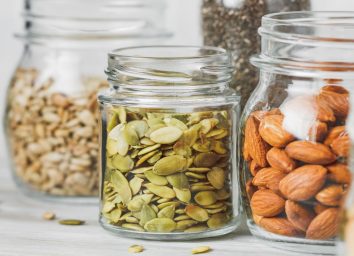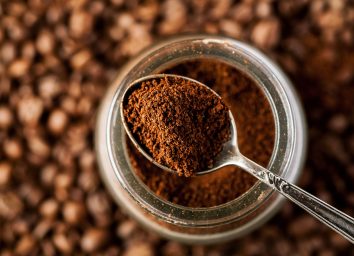The Best Foods for a Kidney Cleanse—And Which to Avoid
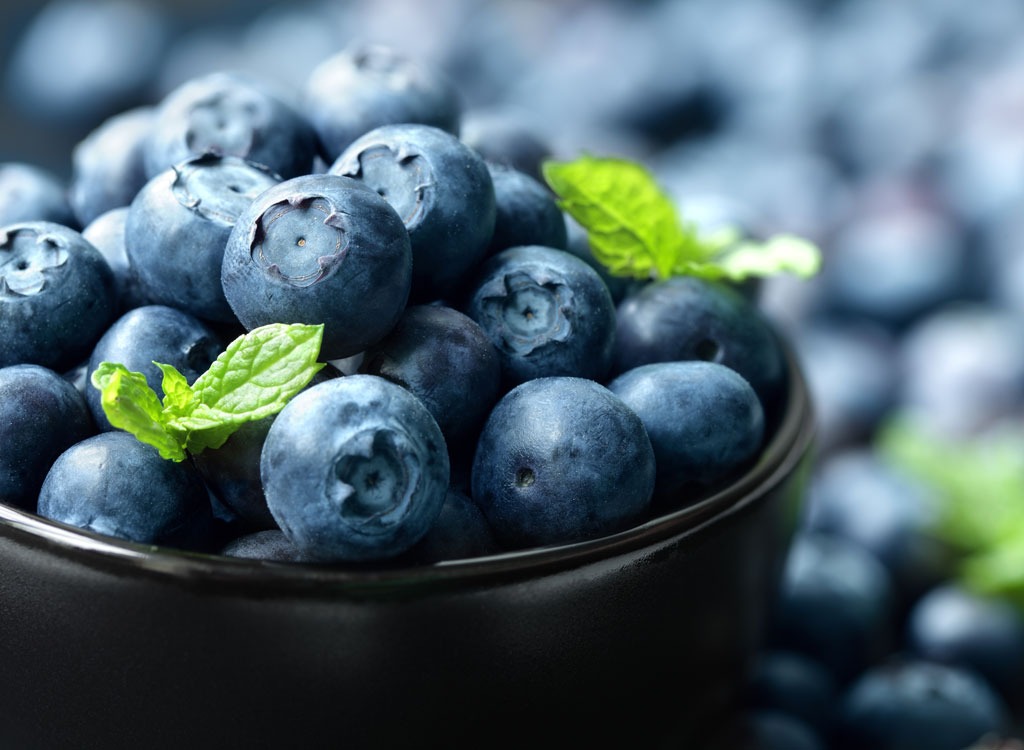
When it comes to your diet, unless you know you suffer from poor kidney health, it’s likely you’re not really thinking about which specific foods are good or bad for the two renal system organs. And even if you suffer from kidney disease, failure, or other kidney issues, you may not be aware of or adhere to a proper every day, best renal diet. While the strictness of your meal plan depends on the stage of your kidney disease, it’s important to understand what you should and shouldn’t put in your body to bolster kidney health, or a kidney cleanse, if you will.
“The kidneys are essential organs that help us maintain fluid and electrolyte balance and remove waste from our blood,” Patricia Bannan, MS, RDN, says. “People who have kidney disease don’t have fully functioning kidneys. Consuming nutrients that the kidney has trouble processing, including protein, sodium, potassium, and phosphorus, can damage the kidneys.”
Unfortunately, in addition to further damaging the kidneys and not boosting kidney function, not following a healthy renal diet for kidney disease management can also potentially cause other health risks, including an increase in blood pressure, an increase in protein in the urine, and it could also contribute to other problems related to bone health and heart health, according to Bannan.
“When your kidneys are not working as well as they should, fluid and waste build up in your body. Over time, the waste and extra fluid can cause bone, heart and other health problems,” she says. “A kidney-friendly meal plan can limit how much of certain minerals and fluid you eat and drink. This can help keep the waste and fluid from building up and causing problems.”
So how do you know what to eat for a kidney-friendly meal?
Lucky for you, Bannan has provided a list of the best foods approved for the renal diet, which obviously all focus on the health of your kidneys, along with foods that won’t help improve your kidney health. She strongly advises consulting with your healthcare provider to learn what dietary choices are advised for you based on your specific kidney condition and treatment plan.
Scroll down for the complete list of the best foods for a kidney cleanse and for the worst foods, too.
First, here are the best foods for your kidneys.
When it comes to optimal kidney health, it’s ideal to consume healthy foods that provide a variety of vitamins, minerals, and antioxidants, but are relatively low in potassium and/or phosphorus.
“Foods that contain antioxidants can help neutralize free radicals in the body,” Bannan says. “Foods that protect against oxidation may be good choices for dialysis patients or people with chronic kidney disease.”
Fatty Fish
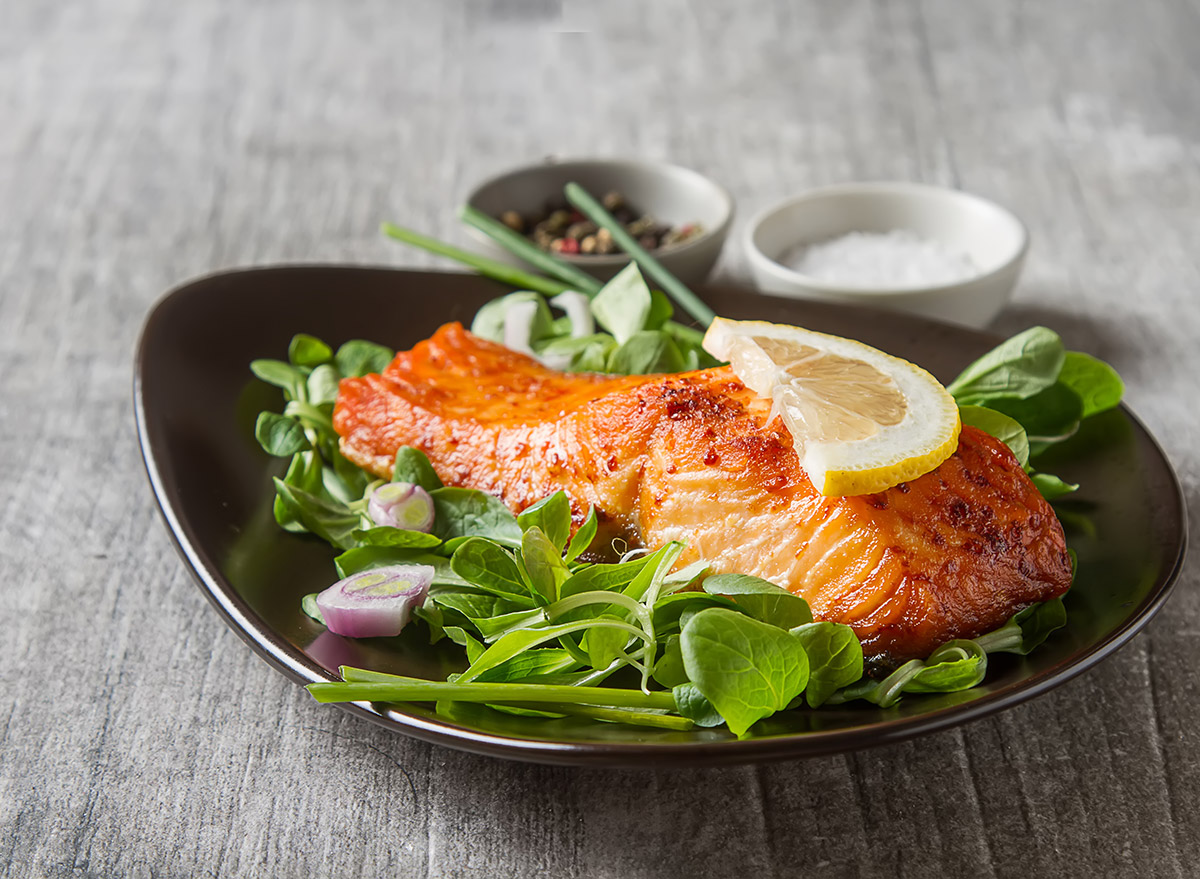
If you wish to eat fish, choose salmon, albacore tuna, mackerel, or herring because they increase omega-3 fatty acids and mono-unsaturated fats in the diet.
“A meta-analysis of research done in 2017 found that omega-3s have been shown to decrease proteinuria, a common complication in kidney disease,” Bannan says.
Egg Whites
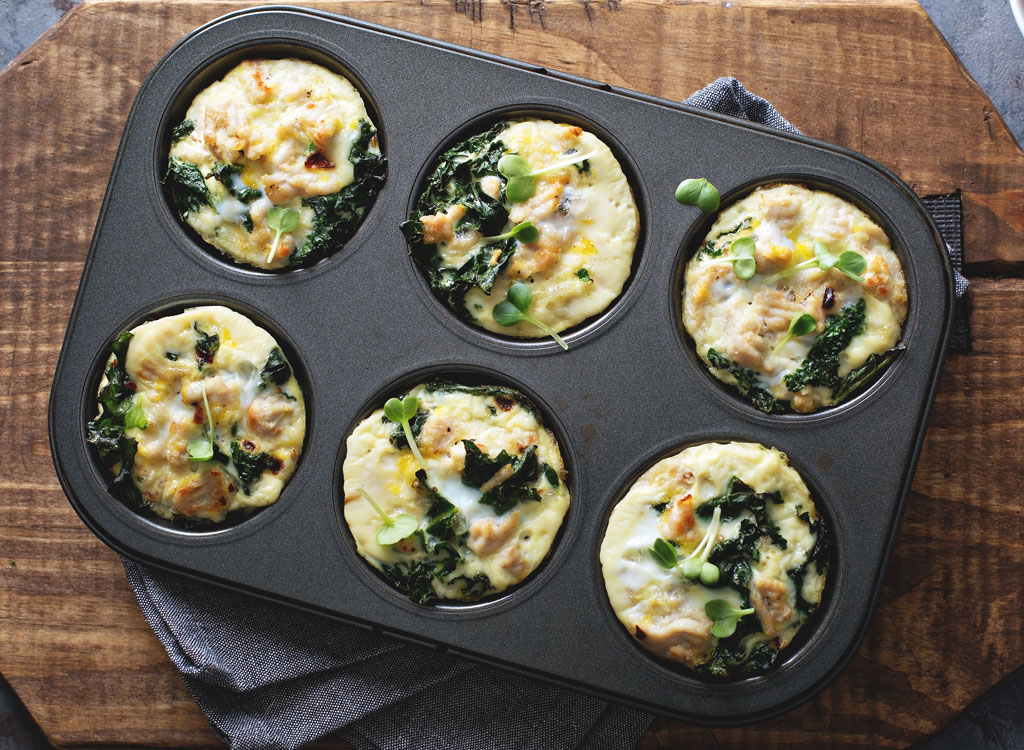
Since egg yolks contain a lot of phosphorus, which should be avoided if you suffer from kidney issues, just stick with the egg whites for a healthy, kidney-safe, and delicious breakfast choice.
Cauliflower

The vegetable is rich with antioxidants, including vitamins C and K, calcium, iron, and magnesium. In addition to providing anti-inflammatory, antiviral, and antibacterial effects, cauliflower is also a great source of fiber. Mashed cauliflower is a great way to add more to your diet—they’re easy to make and are overall a better choice instead of mashed potatoes.
Berries

Berries, specifically blueberries, are a great source of natural antioxidants. They’re also ideal for a kidney diet because they are low in phosphorus, potassium, and sodium, and also reduce inflammation.
Olive Oil
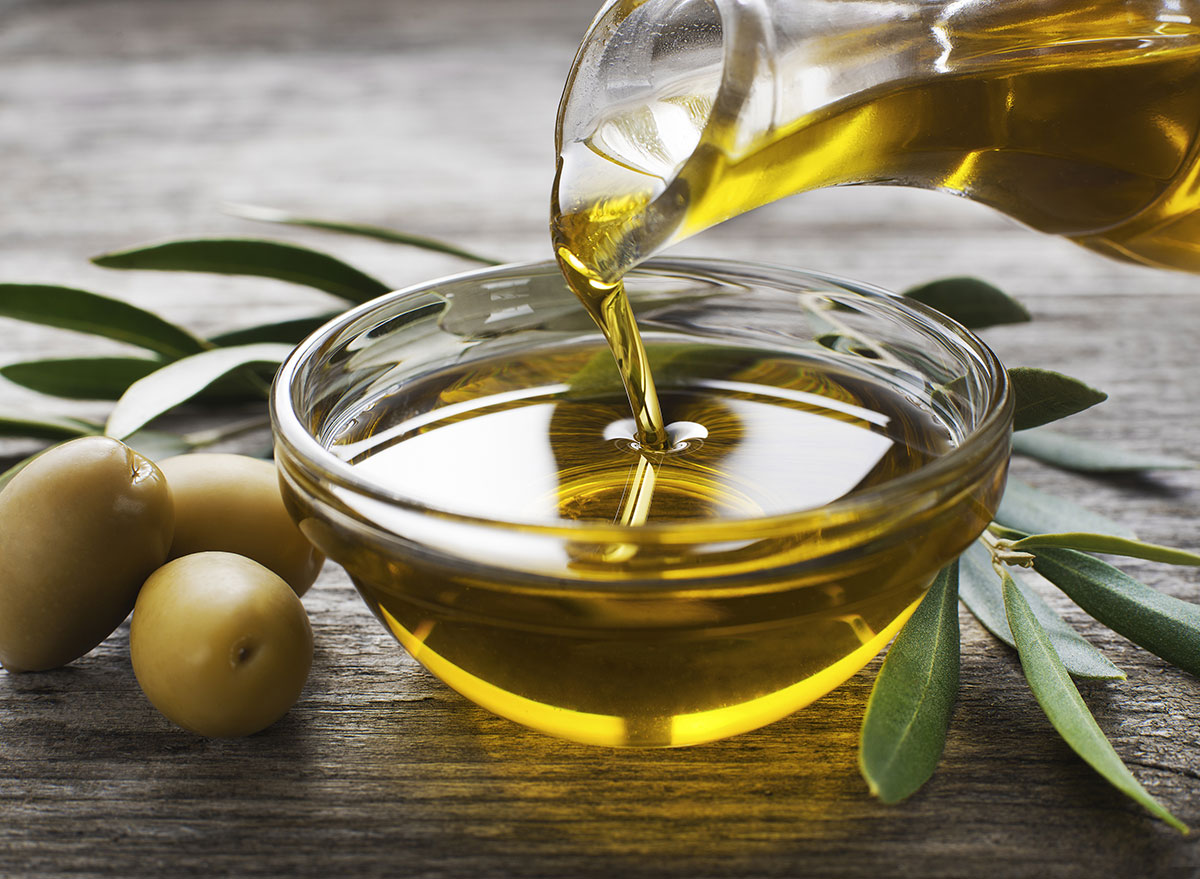
Olive oil is an essential ingredient in the kitchen, so it’s a plus that it’s kidney-friendly. Olive oil also contains oleic acid, which has anti-inflammatory effects. Most importantly for a kidney-safe, best renal diet, olive oil is phosphorus-free. Opt for virgin or extra virgin for salads, marinades, and sautéing because they’re higher in antioxidants.
Garlic
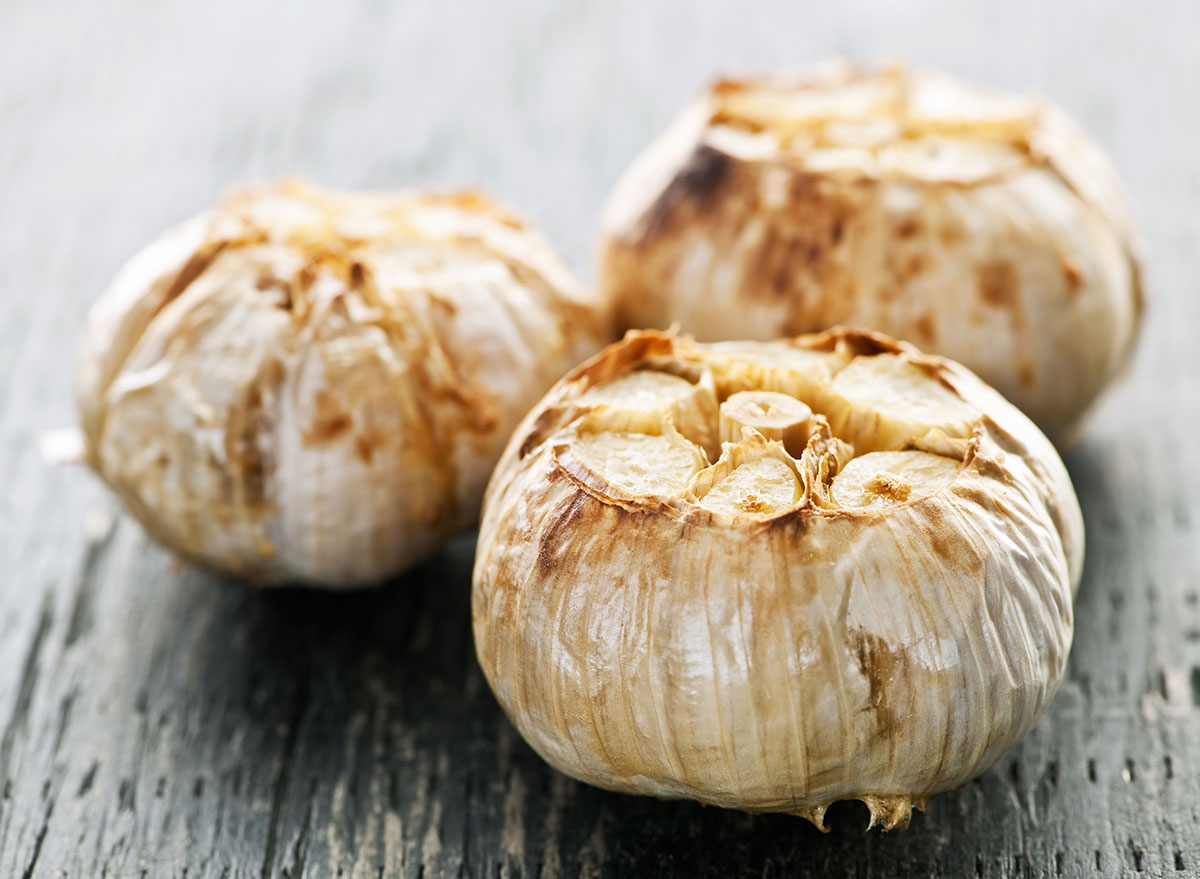
Not only does it smell and taste delicious, but garlic also contains vitamin C and vitamin B6. Be sure to use garlic as a flavor booster while cooking instead of adding salt, and always opt for garlic powder over garlic salt.
Red Grapes
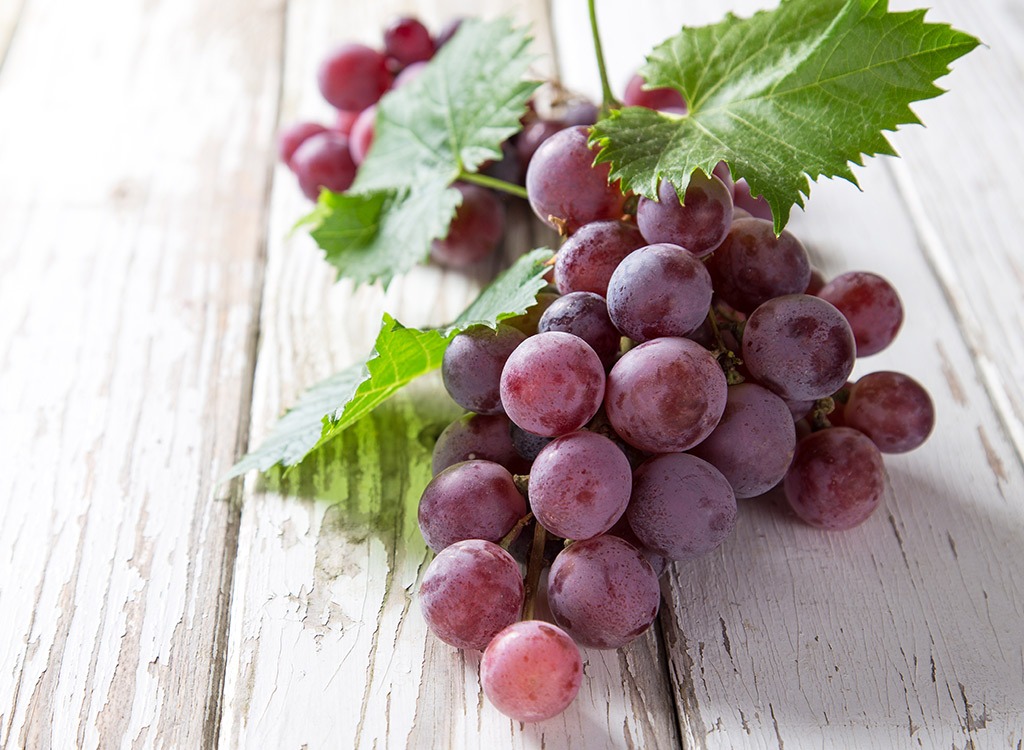
The juicy and delicious fruit contains flavonoids, which are known to help prevent inflammation. A 2017 study even showed that daily intake of grape powder can help reduce the progression of kidney disease. You can drink red grapes in the form of grape juice, or incorporate them into different recipes.
Chicken
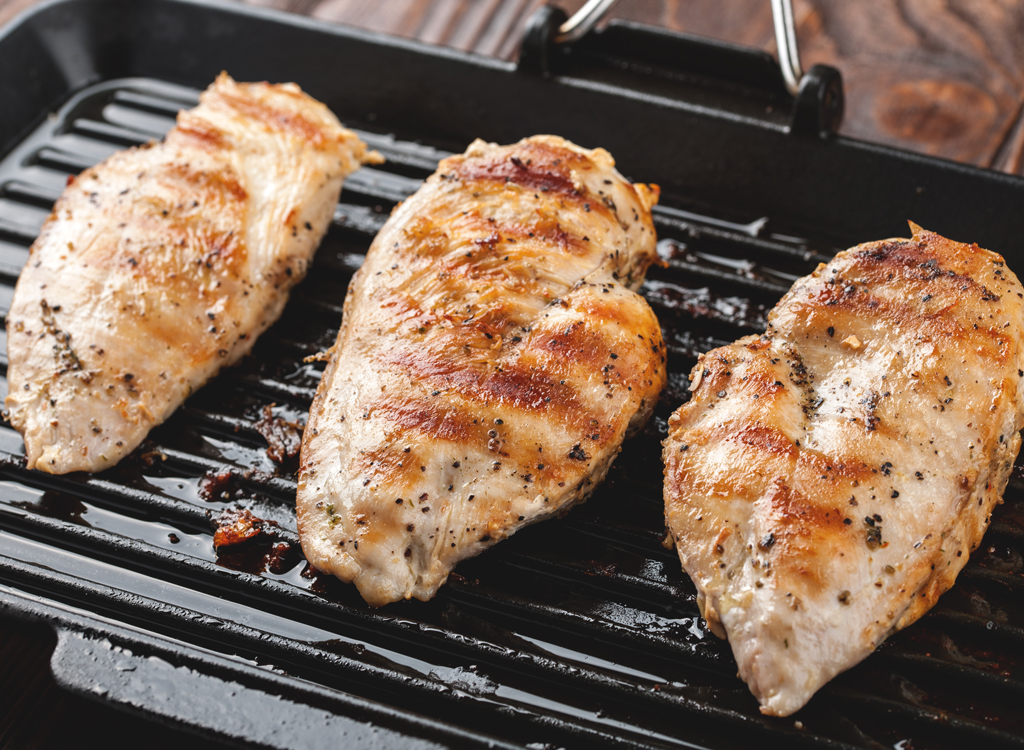
Some people with kidney issues may need to be on a low protein diet, but if you’re not one of those people, chicken, specifically skinless, is a solid choice. Skinless chicken contains less fat, sodium, and phosphorus than skin-on chicken, which is why it’s a good choice for a kidney-specific diet. Plus, it’s easy to incorporate in countless recipes.
Cabbage
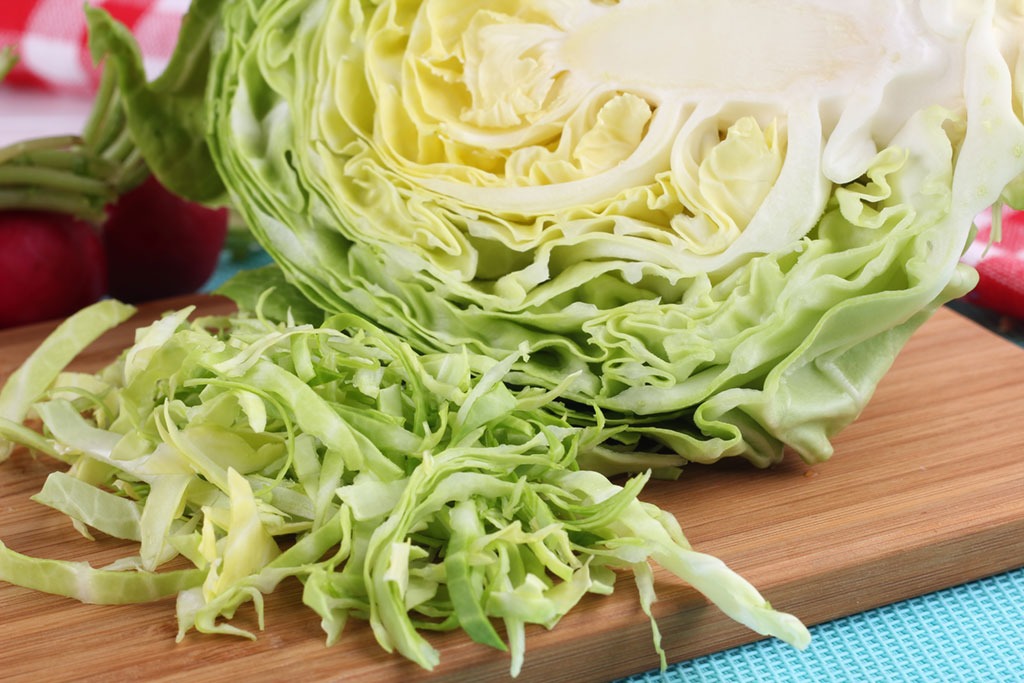
Yes, cabbage is delicious and super affordable but most importantly, it’s packed with nutrients and minerals, which are great for kidney health, as well as stomach health. In cabbage, you will find calcium, vitamin K, vitamin C, fiber, manganese, vitamin B6, folate, and more. It’s also low in phosphorus and potassium, two minerals you should avoid if you have kidney disease.
Bell Peppers
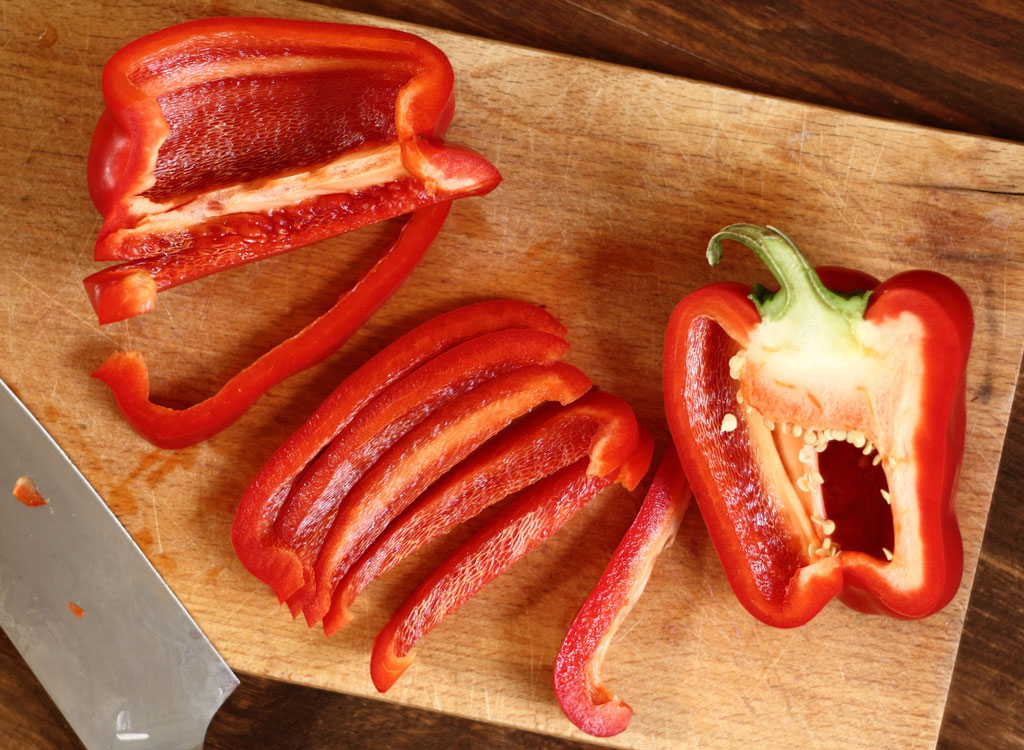
Red peppers are packed with vitamin C and vitamin A, which improves the immune system. Those with kidney disease may have a compromised immune system, so the more of these vitamins, the better. The vegetable is an easy ingredient to cook with too, as it can be used in a slew of recipes like stuffed peppers and fajitas, as well as an addition to omelettes, dips, salads, or sandwiches.
And now, here are the worst foods for your kidneys.
For healthy individuals, it’s crucial to drink enough water so that the kidneys can properly flush out any excess waste materials. If you are not drinking enough water, your body will not secrete enough urine, which can lead to kidney dysfunction, such as the creation of kidney stones. According to the Institute of Medicine, daily fluid intake is roughly 2.7 liters (about 11 cups) a day for women, and 3.7 liters (about 15 cups) a day for men. However, if you have kidney disease and you’re looking to improve your overall kidney health, Bannan says you may need to limit your fluid intake. “This is because damaged kidneys do not get rid of extra fluid as well as they should. Too much fluid in your body can be dangerous,” she says. “It can cause high blood pressure, swelling, and heart failure. Extra fluid can also build up around your lungs and make it hard to breathe.”
It’s also important to cut out high phosphorus foods, which are often limited for those with chronic kidney disease “because hemodialysis removes only a small amount of phosphorus from the blood,” Bannan says. “When phosphorus levels in the blood get too high, it can increase the risk of developing complications such as weak and brittle bones and calcium deposits in blood vessels and organs.”
In addition to phosphorus, Bannan says some people need to limit high potassium foods if they have kidney disease.
“When on hemodialysis, potassium-rich foods are limited because potassium can build up between dialysis treatments, which can cause muscle cramps, fatigue, weakness, an irregular heartbeat, and even heart attack,” she says.
Dried beans and peas
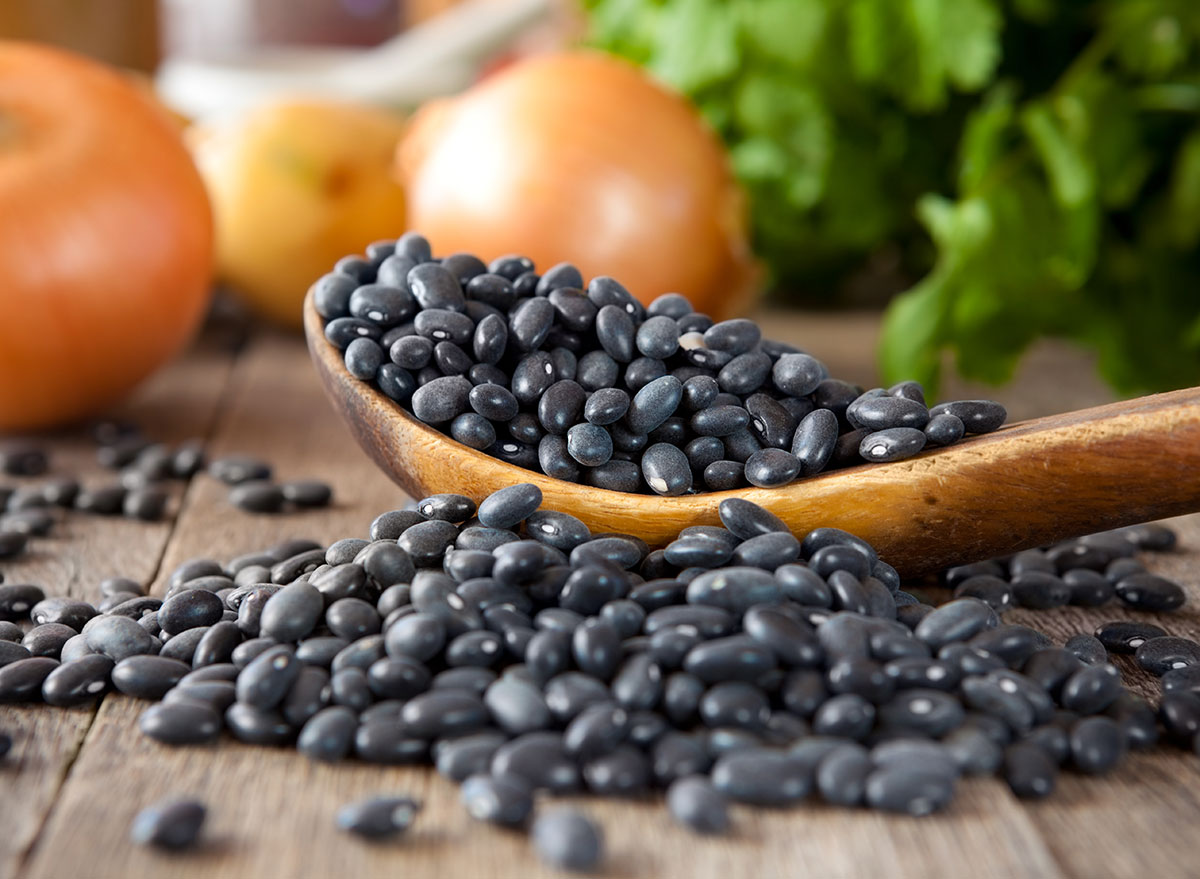
Dried beans and peas happen to be very high in phosphorus. It’s also ideal to avoid the canned versions of beans and peas as well since they’re known to be high in sodium.
Dairy Products
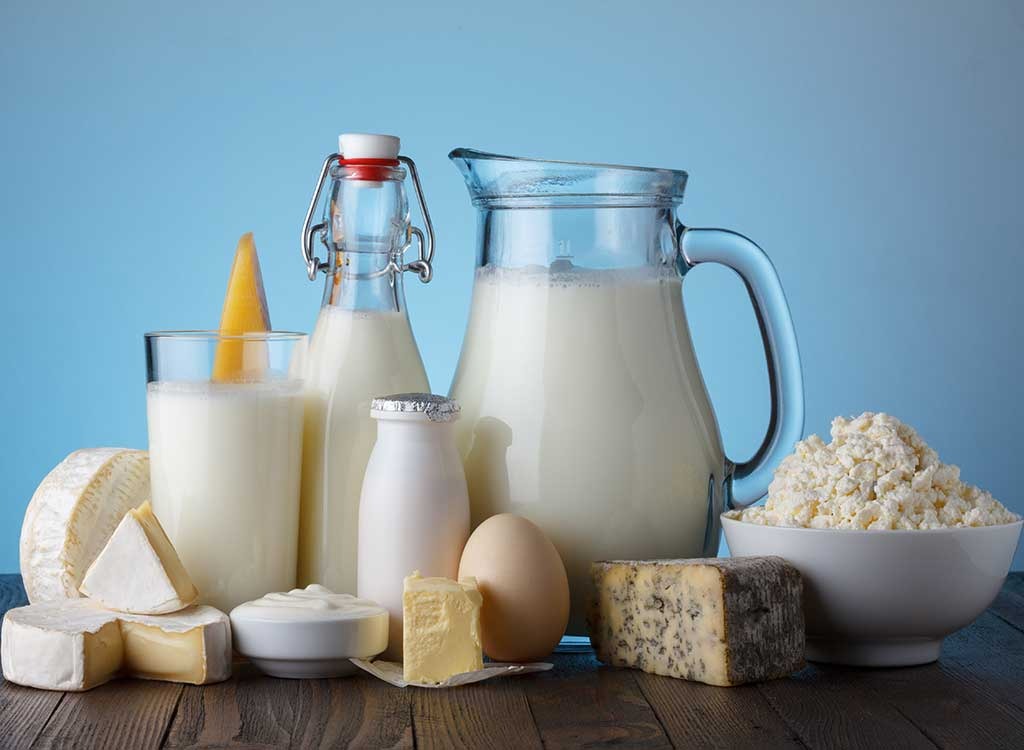
Dairy products, including milk, ice cream, yogurt, and cheese, should be avoided because dairy naturally contains a lot of phosphorus and potassium.
However, dairy products are rich in calcium, so just be cautious of pairing too much dairy with other phosphorus and potassium-rich foods if you are allowed to indulge once in a while.
Nuts
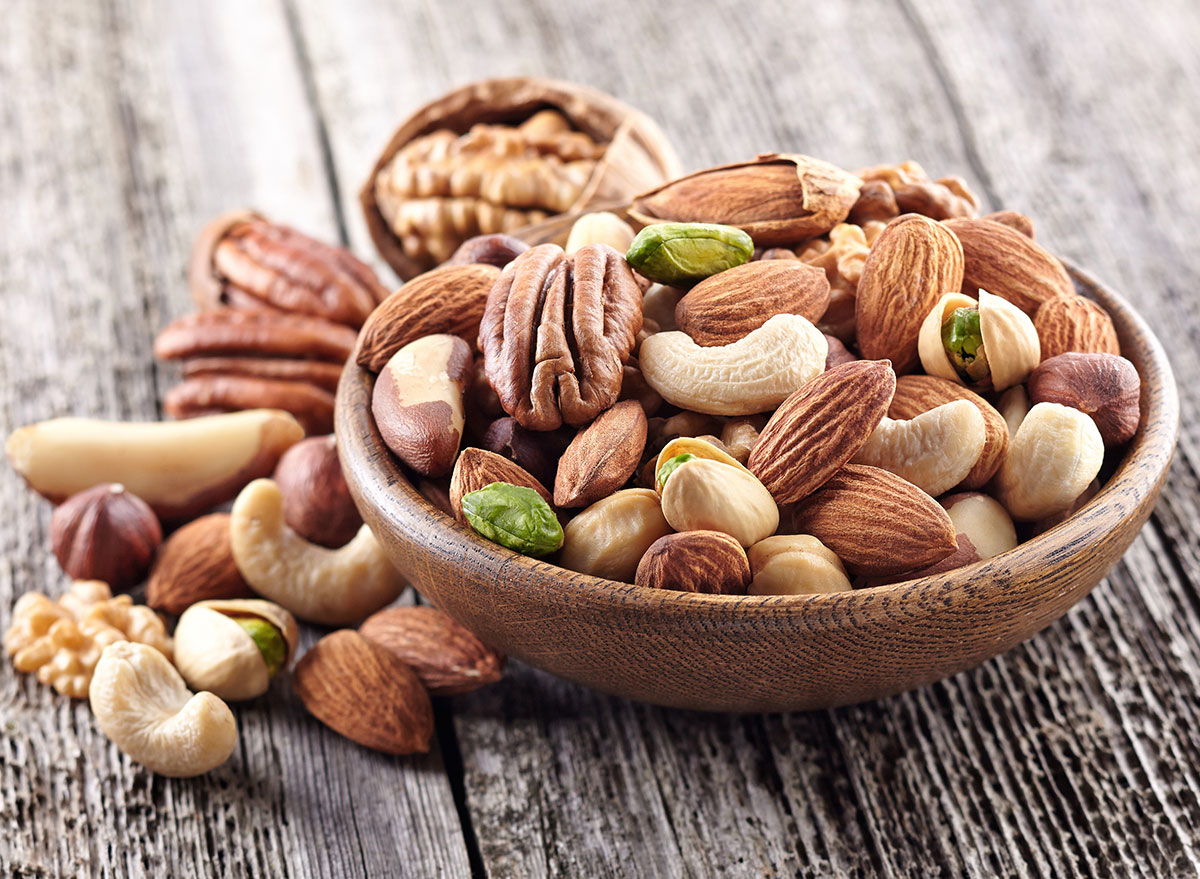
While nuts (yes, that includes spread such as peanut butter) are packed with nutrients and minerals, they are also unfortunately high in potassium, phosphorus, and sodium.
Swap nut butters for more kidney-friendly spreads such as butter, margarine (both potassium-free), jelly, or jam.
Bran Products
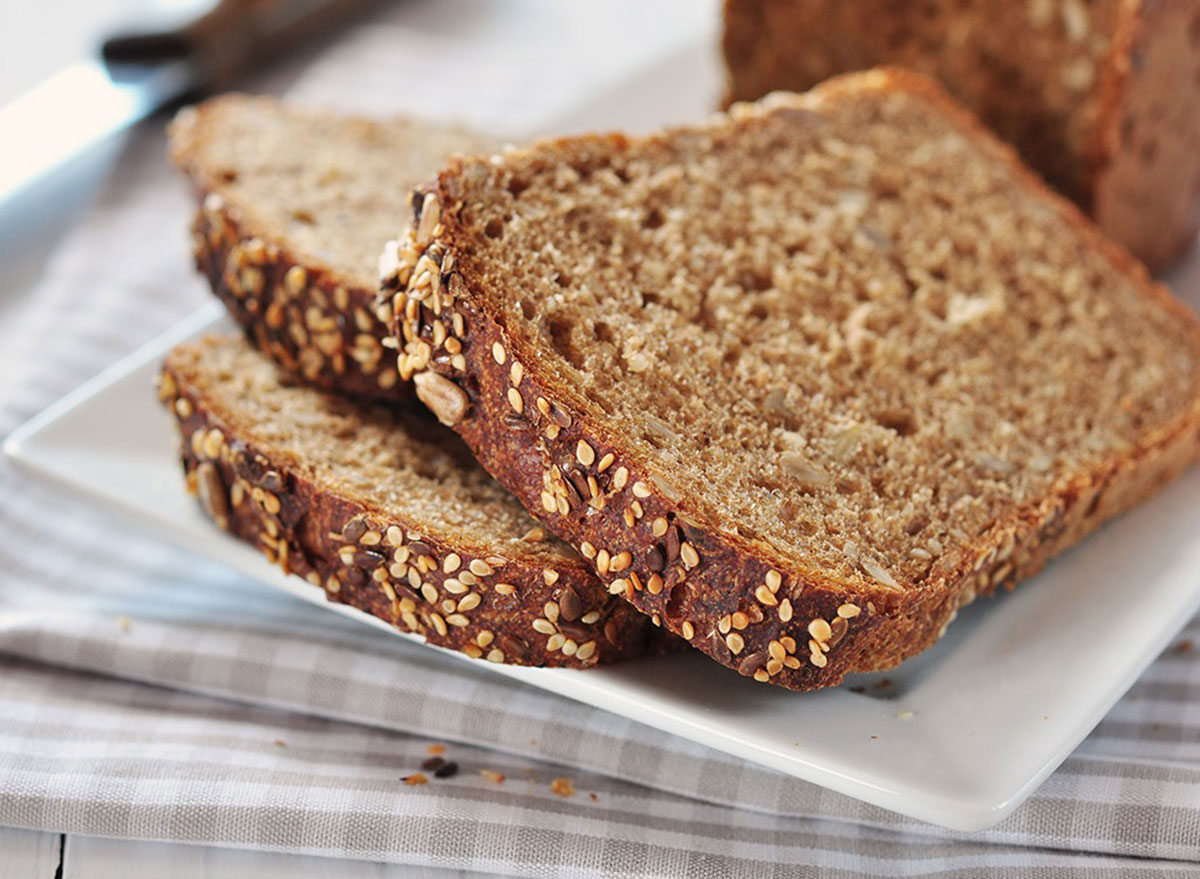
Bran products, such as whole wheat/grain bread, oatmeal, and cereal contain a lot of phosphorus and potassium, so you’re better off with white bread if you suffer from kidney issues. Furthermore, a lot of bread-products tend to be high in sodium.
Bananas
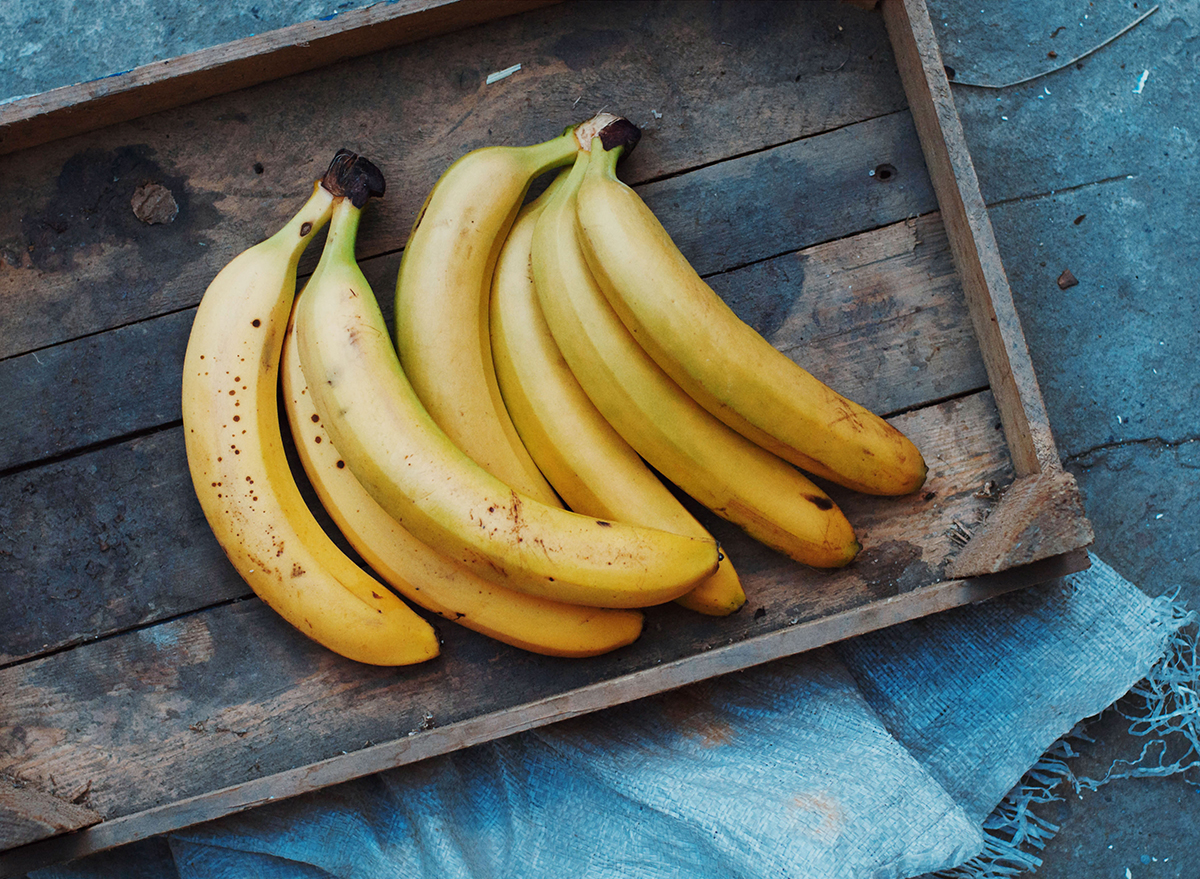
Bananas are known to be of the most potassium-rich fruits out there. Unfortunately, a lot of fruits are high in potassium, so Bannan recommends avoiding juices made from them, including orange juice, tomato juice, prune juice, apricot juice, and grapefruit juice.
Red Meat/Processed Meats

Both red and processed meats are high in sodium, protein, and phosphorus, all of which should be avoided in a kidney-friendly diet.
“For people with both diabetes and kidney disease, this can make their insulin resistance worse,” Bannan says. “A research review found that limiting red meat in the diet could potentially slow the progression of kidney disease, as well as reduce cardiovascular risk.”
Sweet Potatoes/White Potatoes
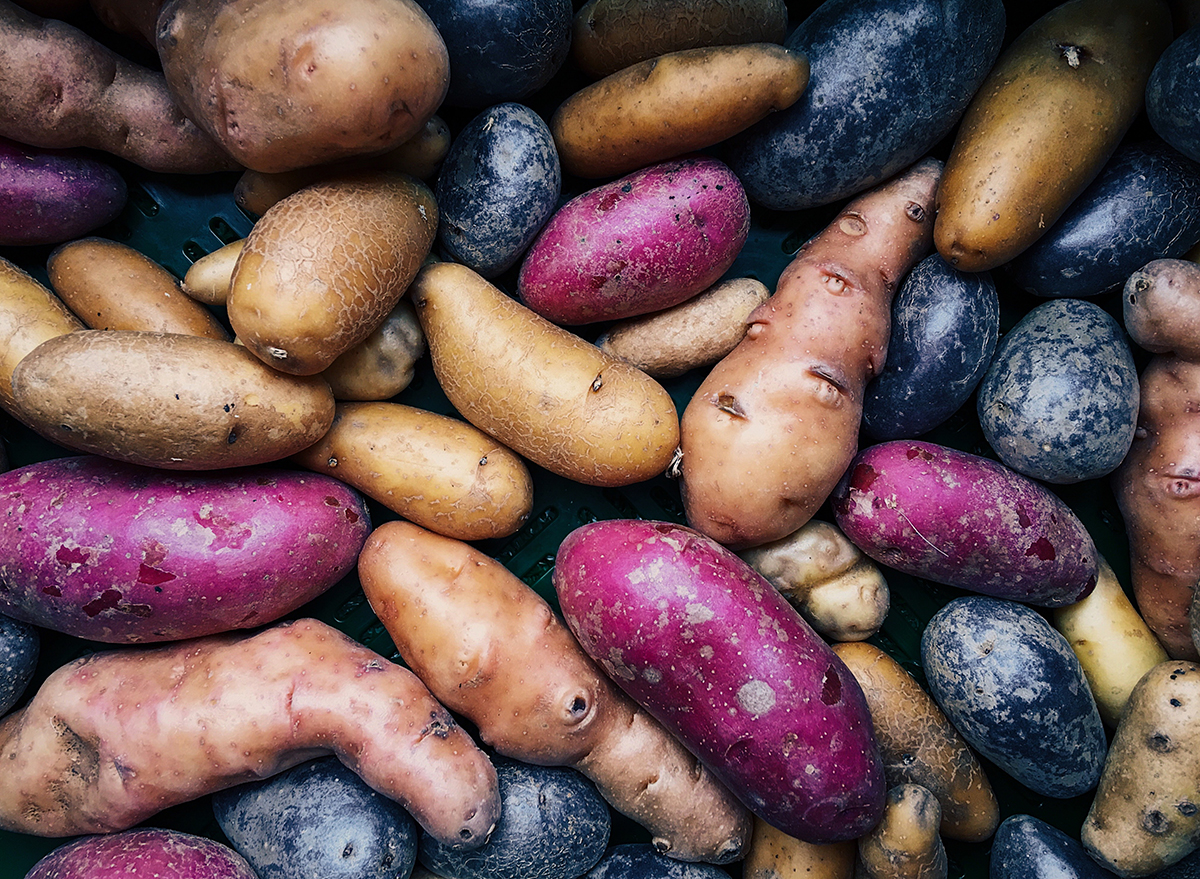
Soaking and boiling potatoes can help reduce potassium by 50 percent, however, this doesn’t eliminate every bit of potassium in the potato. Sorry, but these will have to go if it’s often a dinner side-dish you turn to.
Tomatoes

This nightshade vegetable happens to contain a lot of potassium, so it’s best to skip not only if you’re trying to cleanse your kidneys, but if you happen to be battling an autoimmune disease, too. Davita Kidney Care recommends choosing onions, mushrooms, garlic, or peppers in place of tomatoes.
Avocado
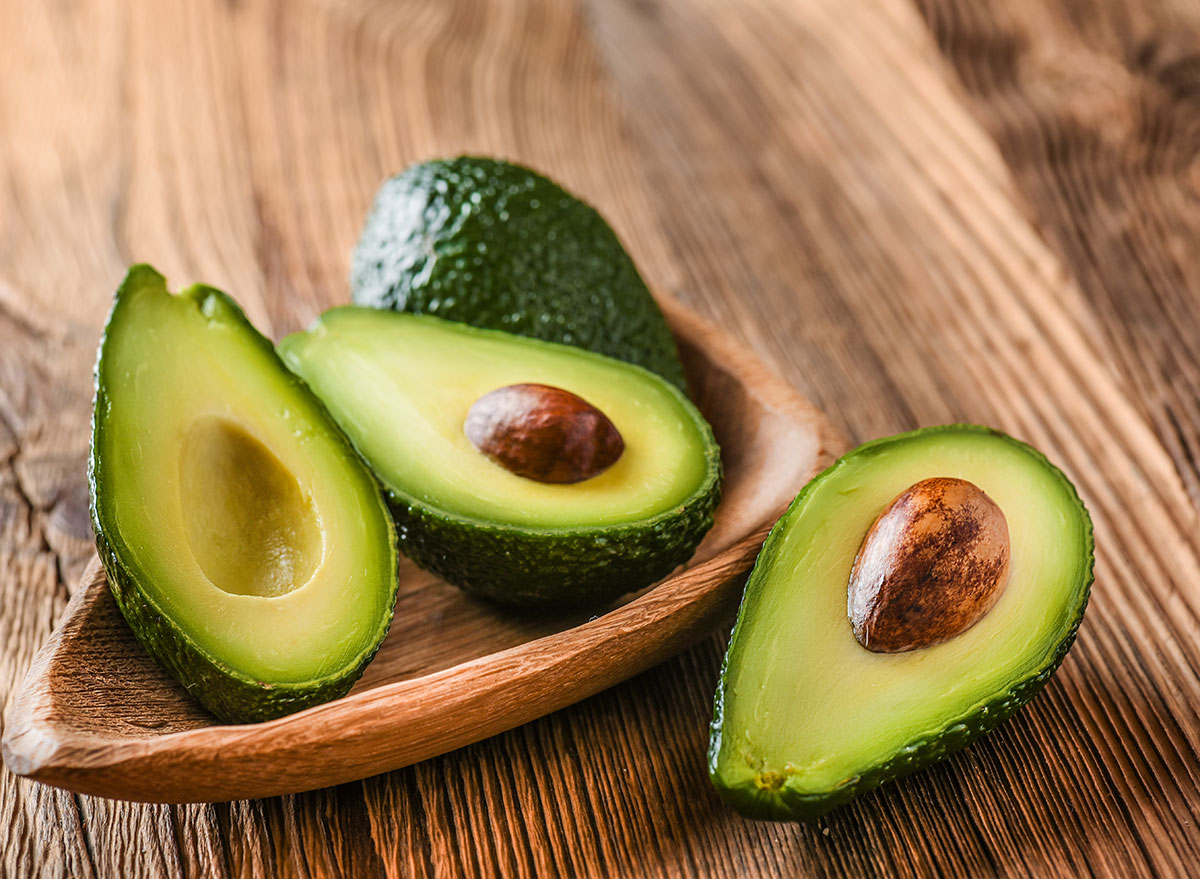
Although there are typically a slew of health benefits when it comes to eating avocados, the same can’t necessarily be said if you suffer kidney issues. Believe it or not, avocados contain more potassium than bananas, so they’re a big no-no in a kidney-friendly diet.
Soda
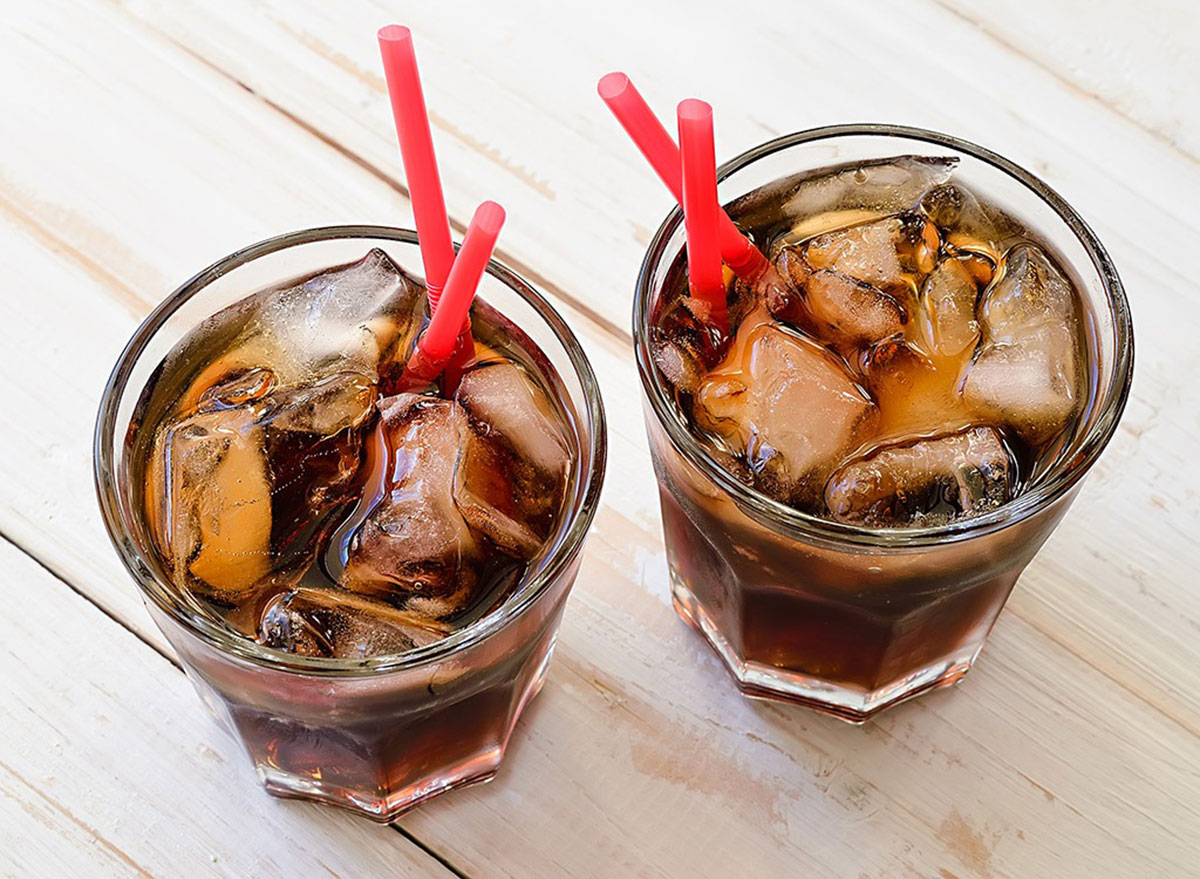
To no surprise, soda should be avoided. Soda, specifically dark-colored varieties, contain sugar and added phosphorus, which the human body highly absorbs. Need more proof soda should always be avoided? Any of the most popular sodas we ranked by how toxic they are will do the trick.
